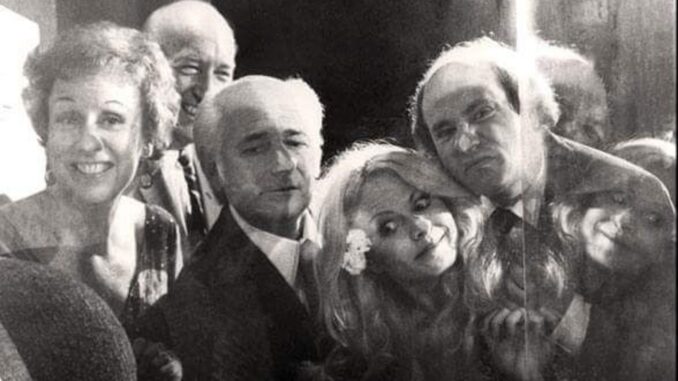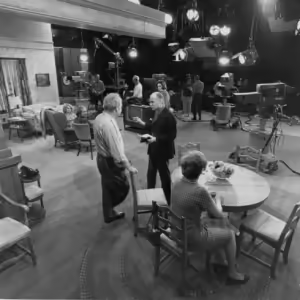
All in the Family was the first program to truly reckon with the cultural upheaval of 1960s America. TV will never be the same.
When cbs first placed All in the Family on the air, on January 12, 1971, it irrevocably transformed television. After a shaky first season in which it struggled to find an audience, the show prospered, rising to become No. 1 in the ratings for five consecutive years, a record unmatched at the time. All in the Family commanded national attention to a degree almost impossible to imagine in today’s fractionated entertainment landscape. Archie Bunker’s catchwords—stifle, meathead, and dingbat—all became national shorthand. Scholars earnestly debated whether the show punctured or promoted bigotry.
Its success not only helped lift The Mary Tyler Moore Show, M*A*S*H, and the other great topical comedies of the early 1970s, but also cemented the idea that television could be used to comment meaningfully on the society around it— an idea the networks had uniformly rejected throughout all the upheaval of the 1960s. That legacy—the determination to connect the medium to the moment—reverberates through shows as diverse as Fleabag, Atlanta, Breaking Bad, The Wire, and countless others. The night that CBS initially aired All in the Family was the first step on the road toward the Peak TV that we are living through today.
When cbs first placed All in the Family on the air, on January 12, 1971, it irrevocably transformed television. After a shaky first season in which it struggled to find an audience, the show prospered, rising to become No. 1 in the ratings for five consecutive years, a record unmatched at the time. All in the Family commanded national attention to a degree almost impossible to imagine in today’s fractionated entertainment landscape. Archie Bunker’s catchwords—stifle, meathead, and dingbat—all became national shorthand. Scholars earnestly debated whether the show punctured or promoted bigotry.
Its success not only helped lift The Mary Tyler Moore Show, M*A*S*H, and the other great topical comedies of the early 1970s, but also cemented the idea that television could be used to comment meaningfully on the society around it— an idea the networks had uniformly rejected throughout all the upheaval of the 1960s. That legacy—the determination to connect the medium to the moment—reverberates through shows as diverse as Fleabag, Atlanta, Breaking Bad, The Wire, and countless others. The night that CBS initially aired All in the Family was the first step on the road toward the Peak TV that we are living through today.

One night, Lear helped Simmons finish a parody of a popular song he had written. When they found a nightclub singer to buy the song, their payday was only $40 between them, but that was enough to convince the two to drop their salesman’s satchels and plunge into a full-time writing partnership. Soon after, they caught the attention of industry insiders and began writing for an early television-variety show.
Through the 1950s, Lear’s career advanced in step with the growth of television itself. These were the years of television’s so-called golden age, when earnest dramas such as The Philco Television Playhouse groomed a steady stream of young directors for Hollywood. Lear marinated in the other great television product of those years: the star-led variety shows, such as Sid Caesar’s Your Show of Shows, that drew on traditions of vaudeville and radio comedy.
Lear thrived in this world. He began to ricochet between Los Angeles and New York, mastering the breakneck pace of television production—he survived the constant deadlines, he later recalled, on Dexedrine to stay awake for all-night writing sessions and Seconal to sleep when they were over. He honed his sense of comedy, absorbing the rhythms of sketches that had to quickly grasp an audience’s attention between singers and dancing acts.
His work was skilled and professional, and his shows were sufficiently successful to constantly open new doors for him. Eventually, he and Simmons ended their partnership, and Lear took up with the director Bud Yorkin, with whom he created a production company that developed both television programs and movies for Paramount.
Some of these films (including Come Blow Your Horn and Divorce American Style) managed respectable box-office returns, but none generated much critical excitement. No reviewers saw in the Lear and Yorkin movies, or their succession of television specials with soft-edged mainstream entertainers, the profile of anything new. Looking back, one Hollywood executive described them in those years as “yeoman producers, just guys that would get their heads down and do the work.” Little of Lear’s work in the 1960s signaled that he had much to say about the way America was transforming around him.